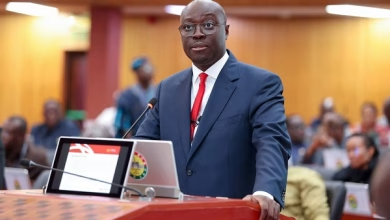President Nana Akufo-Addo has officially launched the first phase of Ghana’s Petroleum Hub development in Jomoro, Western Region.
This ambitious project aims to boost the nation’s oil and gas industry and position Ghana as a regional energy trading hub.
A Comprehensive Vision
Spanning 20,000 acres, the Petroleum Hub will include refineries, petrochemical plants, storage tanks, jetties, and port infrastructure.
Other key components include a power plant, rail and road networks, LNG terminals, pipelines, water treatment facilities, and more. The project is estimated to cost around US$60 billion.
Economic Impact and Job Creation
Upon completion, the Petroleum Hub is expected to significantly boost Ghana’s economy, with a projected GDP growth of 70% by 2036.
It will attract international oil trading companies, create regional trading champions, and foster local-international joint ventures.
The Hub is expected to create over 780,000 direct and indirect jobs.
A Sustainable Approach
President Akufo-Addo emphasized the project’s importance for Ghana’s future, highlighting job creation, economic stability, and local development. He directed the government to train 200,000 Ghanaians for the Hub and released GH¢200 million for land compensation.
The Petroleum Hub Development Corporation (PHDC) is committed to minimizing its environmental footprint.
Initiatives include developing a live wall, adopting advanced technologies for emission control, and implementing effective waste management practices.
The Corporation is also focused on safeguarding biodiversity and ensuring sustainable operations.
A Community-Driven Project
The Petroleum Hub is not just an industrial project but also a community-driven initiative. Government and investors are committed to ensuring local communities benefit from the Hub’s development through investments in infrastructure, education, healthcare, and social programs.
The ground-breaking ceremony for Ghana’s Petroleum Hub marks the beginning of a transformative project.
It has the potential to significantly impact Ghana’s economy, energy sector, and industrial capabilities. By prioritizing sustainable development and community engagement, the Hub can drive long-term prosperity for the people of Ghana.
